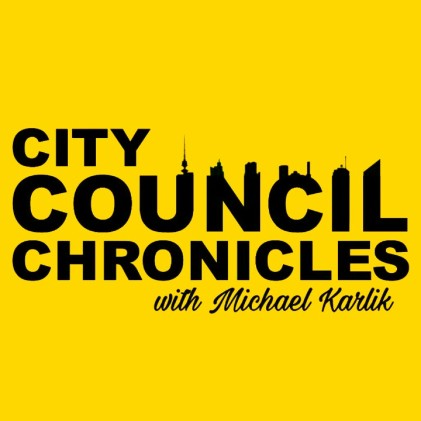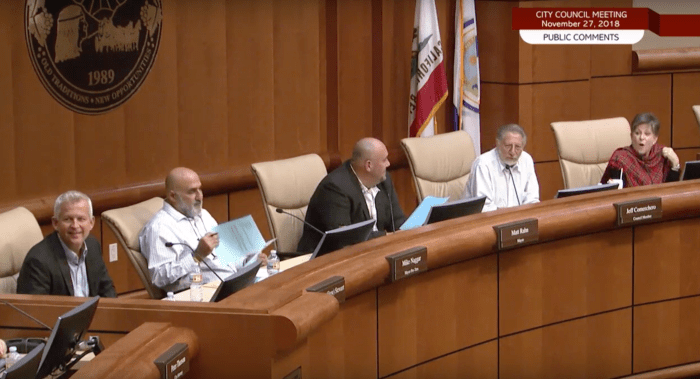This podcast interview is available on iTunes, Stitcher, Player FM, and right here:
Warren Lieberman has been a Belmont council member for 13 years, and there have been a few notable changes. He discusses the mock council exercise he helped institute for second graders and what policies they pretended to pass.
—
Q: On October 17 of last year, your council welcomed second graders into city hall for a mock council meeting. Tell me why Belmont started bringing the niños into the council chamber.
A: For a long time, Belmont’s second graders have come to visit city hall. Typically they would see the council chambers and they would be told about the council meeting and they would meet the mayor. And I thought, you know what? That doesn’t really give the second graders a good picture or understanding of what happens. So I suggested to make it more interesting, why don’t we actually stage a mock council meeting? We assigned some of the second graders to be council members, some to be city staff, some to be members of the public, and we created a 15-20 minute exercise.
Q: What concept did these kids have the hardest time grasping? Was it amending a motion on the floor before voting on the underlying motion? Or sitting still?
A: While we can’t mimic everything that happens in a council meeting, I think for sure the second graders who were members of the public, they certainly had fun giving the council a piece of their mind.
Q: You’re dividing up these roles and obviously there can only be one mayor. In a class of 25 second graders, how do you pick the best candidate?
A: We put the names in a hat and just picked one out. I would say that for second graders, public speaking does not always come naturally. So sometimes, even after you selected the mayor, you need to help encourage them.
Q: What kinds of laws did those second graders pass? And is this why Belmont’s official city animal is Kayden’s family’s puppy?
A: [laughs] I’m not sure that there’s a connection! The focus of the meetings are on some type of park or recreation item. I believe one year, one of the mayors tried to bring in a zoning ordinance. I’m not quite sure how well that one worked.

Q: In 2018, your council had to fill a vacancy. How detailed were the procedures for doing so and how much could you improvise?
A: The council basically by law has two ways to approach things. You can either appoint somebody and there are certain time limits. Or you can go to an election.
Q: You all had this batch of resumes and you voted on your top candidates. All of them happened to be commissioners. Would it have made sense to say on the application that there would be a preference for commissioners to get that seat, such that everyone else who didn’t have that experience wouldn’t have wasted their time applying?
A: I wouldn’t see it that way. Certainly for myself, I try hard to look at the type of experience that folks have had. Some might be commissioners. Some might be school board members. Some may be active in the Rotary Club. If you had that kind of qualifier, it would discourage people from applying. From my perspective, I would always be considering them.










